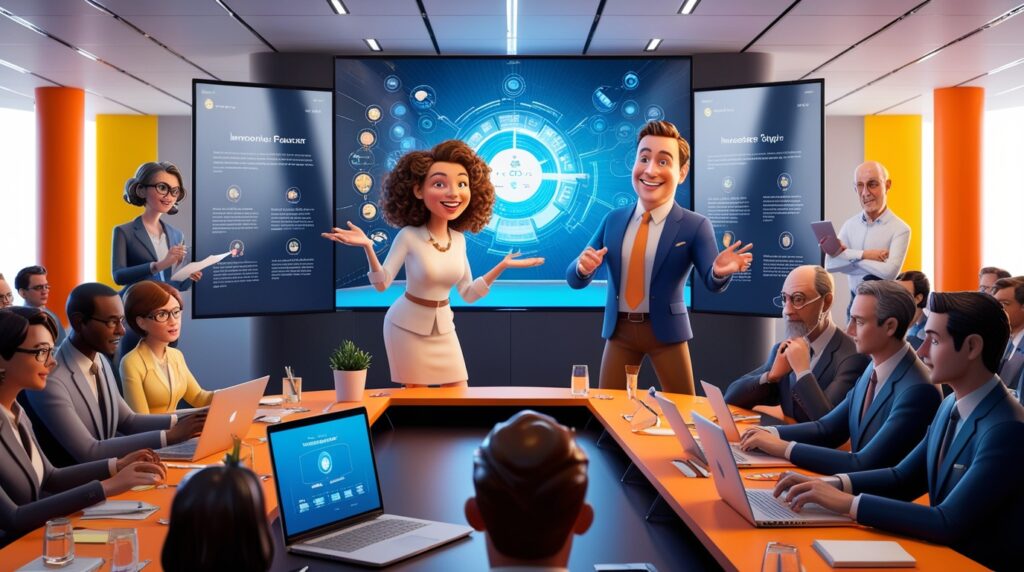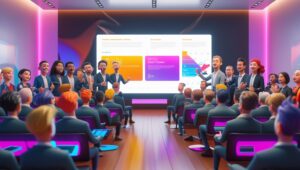Did you know that more than 70% of citizens worldwide believe their governments must adapt to meet modern challenges like climate change, digital transformation, and global security? The Politics Conference serves as a vital platform for academics, policymakers, journalists, and industry leaders to explore solutions, exchange ideas, and influence the future of governance.
Unlike standard political rallies or debates, a Politics Conference offers scholarly depth, professional networking, and cross-cultural dialogue—making it essential for anyone serious about understanding or shaping political landscapes.
What is a Politics Conference?
A Politics Conference is an academic and professional event that brings together political scientists, leaders, policymakers, journalists, and researchers to discuss pressing political, social, and economic issues. It provides a neutral platform for debate, collaboration, and policy innovation.
Key Features of a Politics Conference:
- Panel Discussions – Thought-provoking dialogues on democracy, governance, and international relations.
- Research Presentations – Scholars share cutting-edge studies on political theory and practice.
- Workshops & Training – Skill-building for young professionals, journalists, and policymakers.
- Networking Sessions – Opportunities to connect with global leaders and institutions.
- Policy Recommendations – Outcome-driven discussions that influence real-world decision-making.
Why Attend a Politics Conference?
The benefits of attending extend far beyond academic learning.
Advantages for Participants:
- Knowledge Expansion – Access the latest research in political science and international relations.
- Networking Opportunities – Build connections with academics, NGOs, and policymakers.
- Practical Skills – Enhance public speaking, negotiation, and policy analysis skills.
- Global Perspective – Gain insights into diverse political systems and challenges.
- Policy Impact – Be part of discussions that directly influence political agendas.
Key Themes at Politics Conferences
Each Politics Conference reflects global priorities and regional challenges.
- Democracy & Governance – Strengthening institutions and democratic values.
- Geopolitics & Security – Understanding global conflicts and defense strategies.
- Climate Change & Policy – Addressing environmental challenges through governance.
- Technology & Politics – Examining AI, cybersecurity, and digital governance.
- Human Rights & Social Justice – Exploring inclusivity, equity, and freedom.
These themes ensure that politics conferences remain relevant for both academic research and real-world policymaking.
The Role of Politics in Shaping Society
Politics is not confined to parliaments—it influences every aspect of society. A Politics Conference explores the many ways governance impacts daily life:
- Economic Policy – Shaping trade, taxation, and global finance.
- Education & Health – Policies that determine access and equity.
- Social Movements – Understanding grassroots activism and change.
- International Diplomacy – Negotiating peace, trade, and cooperation.
- Media & Communication – The role of journalism in shaping political narratives.
By highlighting these connections, the Politics Conference bridges theory and practice.
How to Prepare for a Politics Conference
To get the most out of your experience, preparation is key.
Preparation Checklist:
- Submit Research Early – Ensure your paper or presentation is reviewed for inclusion.
- Review Agenda – Identify high-priority sessions aligned with your expertise.
- Engage in Pre-Conference Forums – Join online discussions to build visibility.
- Network Strategically – Prepare questions and connect with speakers.
- Stay Informed – Brush up on current affairs and recent policy developments.
Who Should Attend a Politics Conference?
Politics Conferences welcome a diverse audience, making them relevant for many fields:
- Academics & Researchers – Present findings and expand scholarly networks.
- Policymakers & Leaders – Share experiences and explore governance solutions.
- Journalists & Media Experts – Cover critical discussions and build industry contacts.
- Students & Young Professionals – Gain mentorship and exposure to real-world debates.
- NGOs & Advocacy Groups – Promote initiatives and collaborate on policy change.
Frequently Asked Questions (FAQ)
1. What happens at a Politics Conference?
It includes keynote speeches, panel discussions, workshops, and networking events focused on political issues.
2. Do I need to be a political scientist to attend?
No. Many conferences welcome policymakers, journalists, students, and interdisciplinary professionals.
3. Are Politics Conferences international?
Yes, many host participants worldwide, ensuring diverse perspectives.
4. Can I attend virtually?
Most conferences now offer hybrid formats, allowing for online participation.
5. How do I register for a Politics Conference?
You can register via the official conference website or academic institutions hosting the event.
Conclusion: Building the Future Through Politics
The Politics Conference is more than just an academic gathering—it’s a global dialogue shaping tomorrow’s policies and societies. From democracy and governance to technology and human rights, it provides a stage where ideas transform into actions.
👉 Ready to be part of the discussion? Register today and join world leaders, academics, and thinkers at the next Politics Conference.















